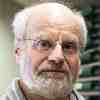Communications of the ACM
Refine your search:
From BLOG@CACM
Computer Systems Research: The Joys, the Perils, and How to Count Beans Well
This post is meant to highlight my subjective take on the joys and the road bumps on the way to doing innovative work in computer systems.
From BLOG@CACM
Birthday Bit Boundaries
Which birthdays would have special significance if our culture were binary-based instead of decimal-based?
From BLOG@CACM
How Do You Calculate on the Abacus?
Considering the use of one of the most long-lived calculating devices.
From BLOG@CACM
Discovery: User Manual of the Oldest Surviving Computer in the World
A rare find: the user manual of the oldest surviving computer in the world, the Zuse Z4 relay machine (1945).
From BLOG@CACM
Technology in the Time of Cataclysms
How is the development of technology, and its more basic cousin science, affected during such cataclysmic times?
From BLOG@CACM
The World's Largest Commercial Cylindrical Slide Rule has a Scale Length of 24m
The world's largest mass-produced cylindrical slide rules come from Loga-Calculator AG in Zurich/Uster, Switzerland.
From BLOG@CACM
Hacking the Axis
The role of early high-performance computing capabilities in World War II.
From BLOG@CACM
Would There Be Computers Without Easter?
Finding roots of computing in the computation of Easter.
From BLOG@CACM
Why Is There No Well-Known Swiss IT Industry?
Herbert Bruderer asks why no information technology industry emerged in Switzerland in the 1950s, despite the appearance of computers from several sources.
From BLOG@CACM
Are My Requirements Complete?
Knowing the notion of sufficient completeness and the theory of abstract data types helps practitioners produce better requirements.
From BLOG@CACM
Soundness and Completeness: Defined With Precision
The two key properties of program analysis are dual of each other.
From BLOG@CACM
An Agile Approach to Learning Programming
The Super Simple Programming Book is one example to teach programming in an Agile way. In general, Agile concepts can lead to highly effective learning.
From BLOG@CACM
Calculating With Roman Numerals is Not So Difficult
How to deal with Roman numerals and without a sign for zero in an additive number system, if no hand abacus is available?
From BLOG@CACM
More Replicas of Historical Calculating Machines Found
Documenting the discovery of several previously unknown replicas of historical computing devices made by Roberto A. Guatelli.
From BLOG@CACM
The Model Maker of Leonardo da Vinci, Blaise Pascal, and Charles Babbage
Discovery of a previously unknown replica of the legendary Swiss Millionaire calculating machine at Carnegie Mellon University in Pittsburgh, PA.
From BLOG@CACM
What Turing and Church Left Out
Concurrency control for readers and writers in a database is a classic problem that illustrates the power of message passing.
From BLOG@CACM
Did Albert Einstein Calculate on the 'Millionaire' in Zurich?
In 1897, ETH Zurich was the first university in the world to have a copy of the legendary four-species calculating machine Millionaire.
From BLOG@CACM
Validating Beneficial AI
The foundational work of the first AI for Good Summit allows the AI community to work together to create an infrastructure for responsible communication, development...
From BLOG@CACM













